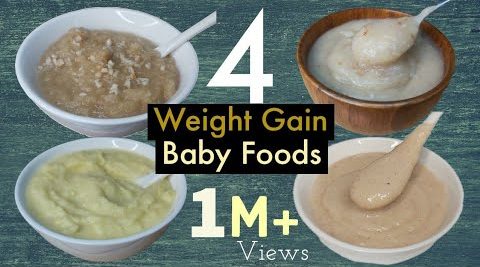Choosing the best milk for your baby is one of the most important decisions parents will make in the early stages of their child’s life. Whether you decide to breastfeed, use formula, or combine both methods, the milk you feed your baby will significantly impact their growth, development, and overall health. In 2025, the choices available to parents have expanded, with a range of options designed to cater to diverse needs, including nutritional value, convenience, and any dietary restrictions. This article delves into the various types of milk for babies, their benefits, and the factors parents should consider when selecting the best milk for their little ones.
1. Breast Milk: The Gold Standard
For centuries, breast milk has been considered the gold standard in infant nutrition. It is packed with essential nutrients, antibodies, and bioactive compounds that help protect babies from infections, promote brain development, and support their overall growth. The composition of breast milk changes over time, adjusting to the baby’s needs, ensuring they receive the right balance of nutrients at each stage of their development.
Benefits of Breast Milk:
- Complete Nutrition: Breast milk provides all the necessary nutrients, including proteins, fats, vitamins, and minerals, that babies need in the first six months of life.
- Immunity Boost: The antibodies and immune cells in breast milk help strengthen a baby’s immune system, reducing the risk of infections like ear infections, respiratory illnesses, and gastrointestinal diseases.
- Digestibility: Breast milk is easier for babies to digest compared to formula, leading to fewer digestive issues like constipation or gas.
- Bonding: Breastfeeding fosters a special bond between mother and child, providing emotional comfort in addition to physical nourishment.
- Developmental Benefits: The long-chain fatty acids (DHA and ARA) found in breast milk are crucial for brain and eye development, supporting cognitive growth in the early years.
While breast milk is widely recognized as the best choice for infant nutrition, it may not always be possible or convenient for every family. Some mothers may experience difficulties with breastfeeding or may choose to use formula for various reasons.
2. Infant Formula: A Close Alternative to Breast Milk
Infant formula is a popular alternative for parents who are unable to breastfeed or choose not to. Modern infant formulas are designed to closely mimic the composition of breast milk, with added nutrients to ensure babies receive the essential vitamins and minerals required for healthy growth. The two main types of infant formula are cow’s milk-based formula and plant-based (e.g., soy) formula, each catering to different dietary needs.
Types of Infant Formula:
- Cow’s Milk-Based Formula: Cow’s milk-based formulas are the most commonly used type of formula. These formulas contain cow’s milk proteins that have been altered to make them suitable for infants. They are usually fortified with iron, vitamins, and minerals, mimicking the nutritional content of breast milk. These formulas are widely recommended and are suitable for most babies.
- Soy Formula: For babies with lactose intolerance or milk protein allergies, soy-based formulas are an alternative. Soy protein is used in place of cow’s milk protein, and these formulas are fortified with essential nutrients like calcium, vitamin D, and iron to meet the baby’s needs. While soy formula is safe for most babies, it is essential to consult a pediatrician before making this choice, as some babies may have soy sensitivities.
- Hypoallergenic Formula: For babies with severe allergies or sensitivities to cow’s milk proteins, hypoallergenic formulas are specially designed to reduce the likelihood of allergic reactions. These formulas contain proteins that are extensively broken down (hydrolyzed), making them easier for babies to digest and less likely to trigger allergies. They are often recommended by pediatricians for babies who exhibit signs of allergies or colic.
- Lactose-Free Formula: Babies who are lactose intolerant may benefit from lactose-free formula, which provides the necessary nutrients without causing discomfort from undigested lactose. These formulas may use plant-based alternatives like corn syrup or sucrose as a sugar source.
Benefits of Infant Formula:
- Convenience: Formula feeding offers flexibility, allowing other caregivers to feed the baby, and providing parents with more freedom.
- Nutrient-Rich: Infant formulas are carefully designed to mimic the nutrients found in breast milk, including added vitamins, minerals, and DHA for brain development.
- Allergy and Sensitivity Solutions: Formulas are available to meet specific needs, such as hypoallergenic or lactose-free formulas, providing alternatives for babies with food sensitivities.
- Consistency: Unlike breast milk, which can vary in composition, formula provides consistent nutrition in every bottle, ensuring that babies are getting the same amount of nutrients each time.
3. Breast Milk Fortifiers: Supporting Premature or Low Birth Weight Babies
In cases where babies are born prematurely or have low birth weights, pediatricians may recommend fortifying breast milk to ensure they receive adequate nutrition. Breast milk fortifiers are specially formulated to add additional calories, protein, and minerals to the breast milk, ensuring premature babies grow and thrive in the critical early stages of development.
Benefits of Breast Milk Fortifiers:
- Growth Support: Fortified breast milk provides the extra calories and nutrients that premature or low birth weight babies need to gain weight and develop properly.
- Tailored Nutrition: Fortifiers can be added to breast milk based on the baby’s specific nutritional needs, making it a flexible option for babies with unique health challenges.
- Enhanced Development: Fortifiers help ensure that babies receive adequate protein and micronutrients to support brain and physical development during a critical time in their growth.
4. Alternative Milks for Babies: Plant-Based and Dairy-Free Options
As dietary preferences and restrictions become more common, some parents are turning to plant-based milk alternatives for their babies. While traditional dairy-based milk is rich in essential nutrients, plant-based milks (such as almond, oat, and coconut) are gaining popularity for various reasons, including lactose intolerance, allergies, or ethical considerations.
Popular Plant-Based Milk Alternatives:
- Oat Milk: Oat milk is a popular choice for babies who are sensitive to dairy and soy. It is generally fortified with vitamins and minerals, including calcium, vitamin D, and iron. However, it should only be used if specifically recommended by a pediatrician, as it lacks the protein and fats needed for optimal infant growth.
- Almond Milk: Almond milk is low in calories and may not provide enough nutrition for infants unless fortified with added nutrients like protein, calcium, and vitamin D. Pediatricians typically advise against using almond milk as a primary milk source for babies under 12 months.
- Coconut Milk: Coconut milk is another alternative that is often low in protein and fats. It may be appropriate as part of a mixed diet, but it should not be used as the sole milk source for babies.
Parents choosing alternative milks should consult with their pediatrician to ensure they are meeting their baby’s nutritional needs. For babies under 12 months, it is generally recommended to rely on breast milk or infant formula as the primary milk source.
5. Considerations When Choosing the Best Milk for Your Baby
When choosing the best milk for your baby, several factors should be taken into account:
- Age: For the first six months, breast milk or infant formula should be the primary source of nutrition. Solid foods can be introduced around six months, but milk remains the main source of nutrients during this period.
- Health Conditions: Babies with allergies, lactose intolerance, or sensitivities may require specialized formulas like hypoallergenic or lactose-free formulas.
- Convenience and Lifestyle: Consider the convenience of breastfeeding, formula feeding, or a combination of both based on your lifestyle and preferences.
- Medical Advice: Always consult with a pediatrician when deciding between different milk options, particularly if your baby has specific health or dietary needs.
Conclusion
In 2025, parents have access to a broad range of milk options, each designed to support their baby’s unique nutritional needs. While breast milk remains the best choice for most infants, infant formulas provide a suitable alternative when breastfeeding is not possible. Specialized formulas and fortifiers further cater to babies with allergies, sensitivities, or special health concerns. For parents exploring plant-based alternatives, options like oat or almond milk can provide some benefits but should be approached with caution and under medical guidance. Whatever the choice, parents should prioritize their baby’s nutritional needs and consult healthcare professionals to ensure the best milk option is selected for their growing child.



